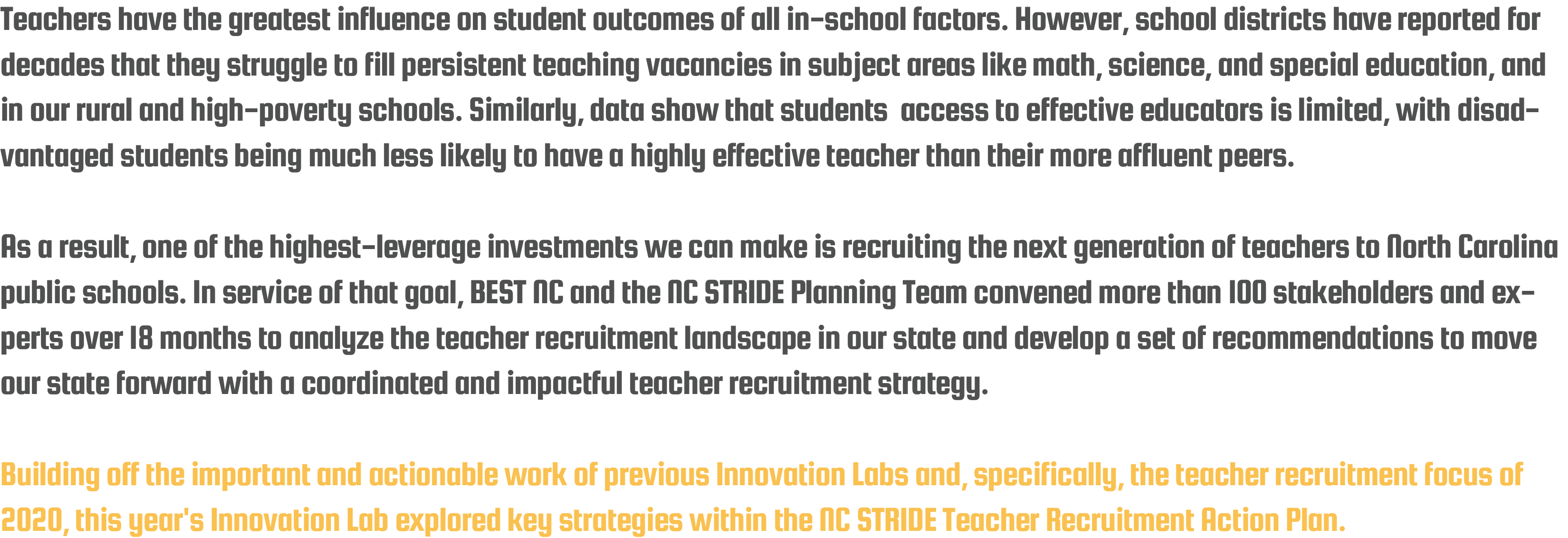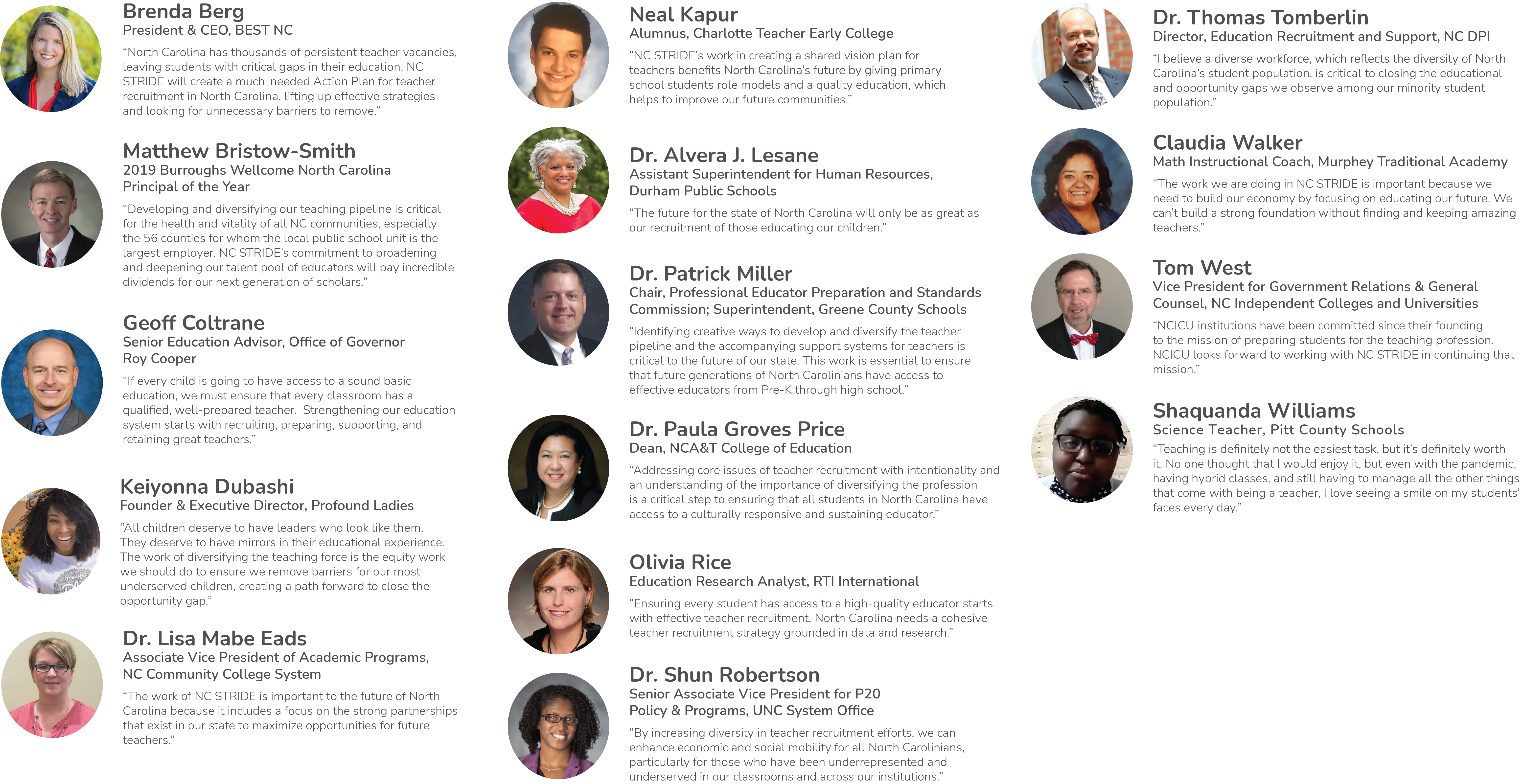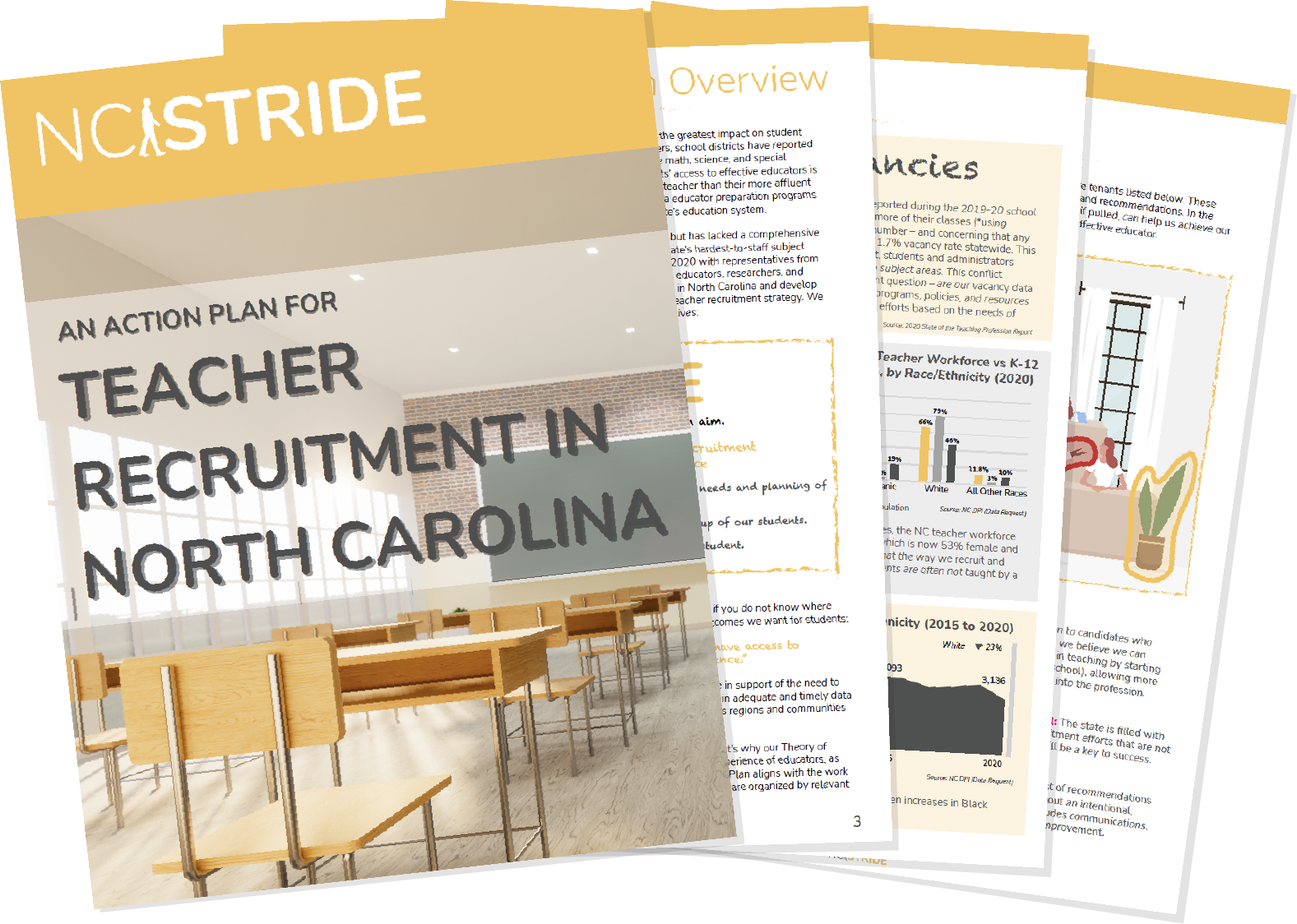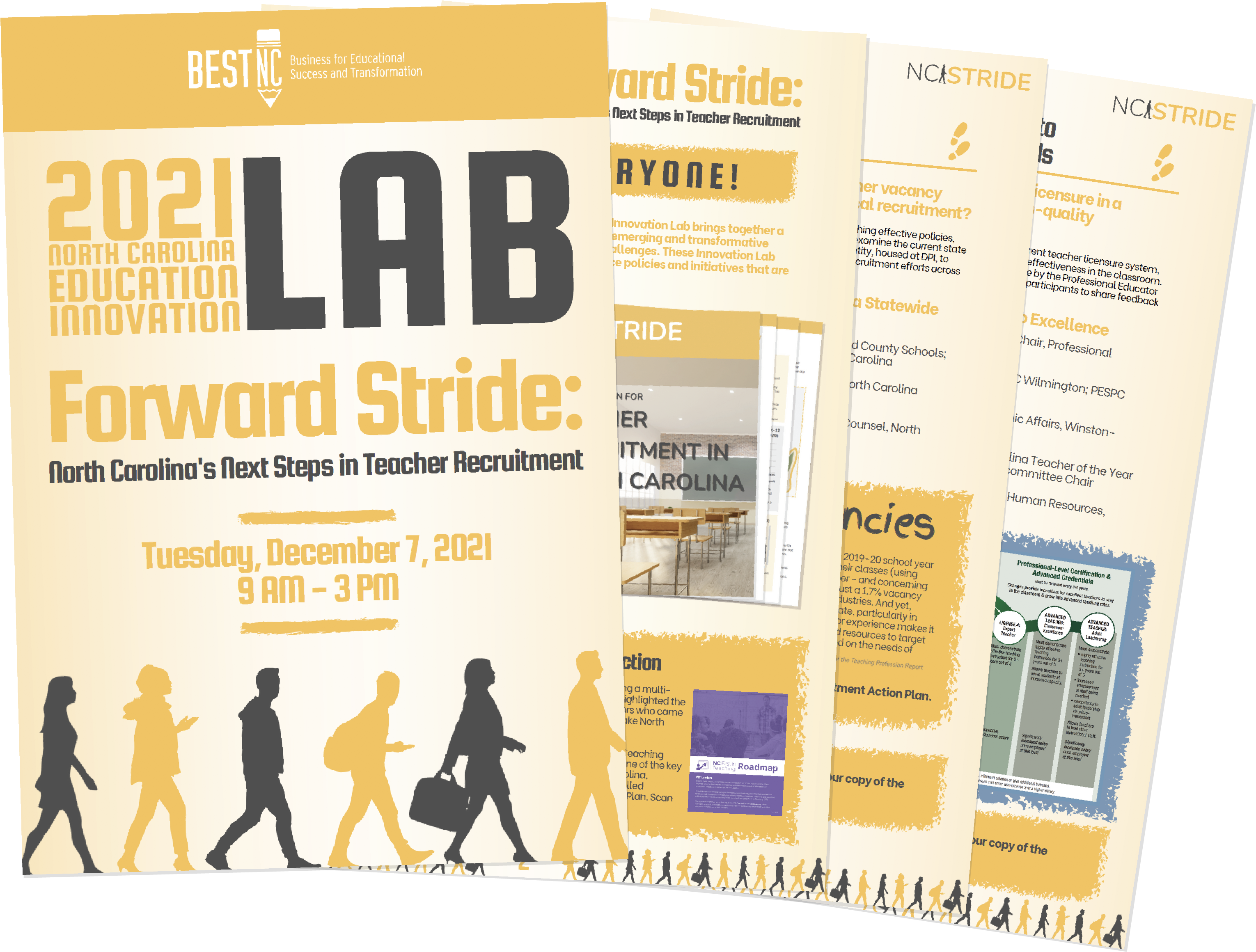



North Carolina’s current teacher vacancy and supply data are inadequate for establishing effective policies, practices, or programs that address schools’ specific staffing needs. This session examined the current state of vacancy data while discussing the need to establish a statewide teacher recruitment entity, housed at DPI, to collect and report data, share best practices, and better align and leverage existing recruitment efforts across the state.
Panelists:
- Shawnda Cherry, Executive Director of Human Resources, Hertford County Schools; Chair, Northeast Region of the Personnel Administrators of North Carolina
- Dr. Tom Tomberlin, Director of Educator Recruitment & Support, North Carolina Department of Public Instruction
- Tom West, Vice President for Government Relations and General Counsel, North Carolina Independent Colleges and Universities

For decades, districts have reported persistent vacancies in subject areas like secondary math and science. Additionally, North Carolina students have inequitable access to educators, with low-income students and students of color less likely to be taught by an effective teacher than their more affluent or white peers. This session explored promising practices utilized by districts and states to recruit effective educators to their most hard-to-staff positions.
Panelists:
- Dr. Alvera Lesane, Assistant Superintendent for Human Resources, Durham Public Schools
- Jessica Sanders, Director of Government Relations, Alabama State Dept. of Education
- Thomas Toch, Director of FutureEd, Georgetown University
Additional Materials:

Pre-service experience as a student teacher is important for success as an educator, but it can also be a financial barrier for candidates coming through the traditional educator preparation pathway. Similarly, an increasing number of teaching candidates are entering the profession through the residency (formerly lateral entry) pathway and are employed as a teacher without any opportunity for pre-service teaching. This session explored the idea of a paid apprenticeship experience for candidates before they become the teacher of record.
Panelists:
- Kathryn Castelloes, Apprenticeship NC Director, NC Community College System
- Stephanie Dean, Senior Vice President for Opportunity Culture Policy and Outreach, Public Impact
- Olivia Rice, Education Research Analyst, RTI International
Additional Materials:

The NC STRIDE working group identified several challenges with the state’s current teacher licensure system, including barriers to entry and advancement criteria that do not correlate with effectiveness in the classroom. This session provided an overview of the ongoing work to modernize licensure by the Professional Educator Preparation and Standards Commission (PEPSC) and allowed opportunities for participants to share feedback and suggestions with PEPSC leadership.
Panelists:
- Dr. Patrick Miller, Superintendent, Greene County Schools; Chair, Professional Educator Preparation and Standards Commission (PEPSC)
- Dr. Van Dempsey, Dean, Watson College of Education at UNC Wilmington; PEPSC Subcommittee Chair
- Dr. Anthony Graham, Provost and Vice Chancellor of Academic Affairs, Winston-Salem State University; PEPSC Subcommittee Chair
- Maureen Stover, 2020 Burroughs-Wellcome Fund North Carolina Teacher of the Year and 2021 Finalist for National Teacher of the Year; PEPSC Subcommittee Chair
- Dr. Westley Wood, Assistant Superintendent of Personnel and Human Resources, Wilkes County Schools; PEPSC Subcommittee Chair
Additional Materials:


Charlotte Teacher Early College (CTEC) opened in August 2017 on the campus of UNC Charlotte to serve students interested in a career in education. As the only program of its kind in North Carolina, CTEC immerses students in intentional field-based learning activities in education, like student teaching. This session highlighted CTEC’s work to recruit the next generation of teachers and explore opportunities to develop other Grow-Your-Own initiatives across North Carolina.

Launched in 2019, the TeachNC initiative was created to elevate the image of the teaching profession and to increase the quantity, quality, and diversity of candidates entering the teacher pipeline in North Carolina. This session spotlighted the ways TeachNC is supporting candidates on their journey to becoming a teacher.











